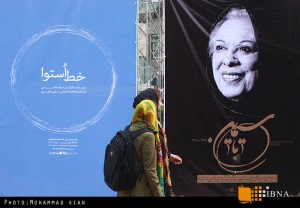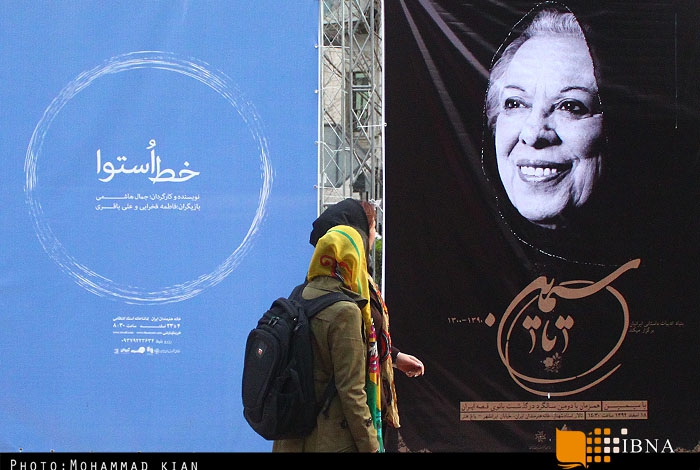 IBNA:The ceremony was held on Sunday March 09 2014 in the presence of senior cultural figures like Seyyed Abbas Salehi, Culture Deputy Minister of Culture and Islamic Guidance, Daneshvar's god-daughter, and a number of prominent Iranian writers and literati.
IBNA:The ceremony was held on Sunday March 09 2014 in the presence of senior cultural figures like Seyyed Abbas Salehi, Culture Deputy Minister of Culture and Islamic Guidance, Daneshvar's god-daughter, and a number of prominent Iranian writers and literati.The characters formed by Daneshvar in her works enjoyed a good political and social understanding of their time. She wrote in support for females but not in line with feministic attitudes.
She never followed western feminism practices which ignore men's rights, but chose its eastern version which respects men's rights as well.
She had a deep grasp of the developments in the country and reflected it in her stories.
Simin Daneshvar, known as the first Iranian female novelist, died in 2012.
She is mostly known as the author of social-historical novel 'Savushun' (1970) which has been translated into 17 languages around the world.
In 'Savushun', she chronicles the life of a Persian family during the Allied occupation of Iran during World War II in Shiraz. The story is narrated through the eyes of Zari, a young wife and mother, who copes with her idealistic and uncompromising husband while struggling with her desire for traditional family life and her need for individual identity.
Born in Shiraz in 1921, Simin Daneshvar got her Ph.D. in Persian Language and Literature from the University of Tehran. At age 27, she published her first book titled 'Extinguished Fire' a collection of short stories, first-ever written by an Iranian female author.
Her other works of fiction include: 'Wandering Island' (novel, 1992), 'Wandering Cameleer' (novel, 2001), 'Selection' (novel, 2007), 'The Quenched Fire' (short stories, 1948), 'A City Like Paradise' (short stories, 1961), and 'To Whom Shall I Say Hello?' (1980).
She was also a well-liked translator and most of her translations have been republished for many times. Her best translations include: 'Arms and the Man' by George Bernard Shaw (1949), 'Enemies' by Anton Chekhov (1949), 'Beatrice' by Arthur Schnitzler (1953), 'The Scarlet Letter' by Nathaniel Hawthorne (1954), 'The Human Comedy' by William Saroyan (1954), 'Cry, the Beloved Country' by Alan Paton (1972), and 'The Cherry Orchard' by Anton Chekhov (2003).
By IBNA
The Iran Project is not responsible for the content of quoted articles.











